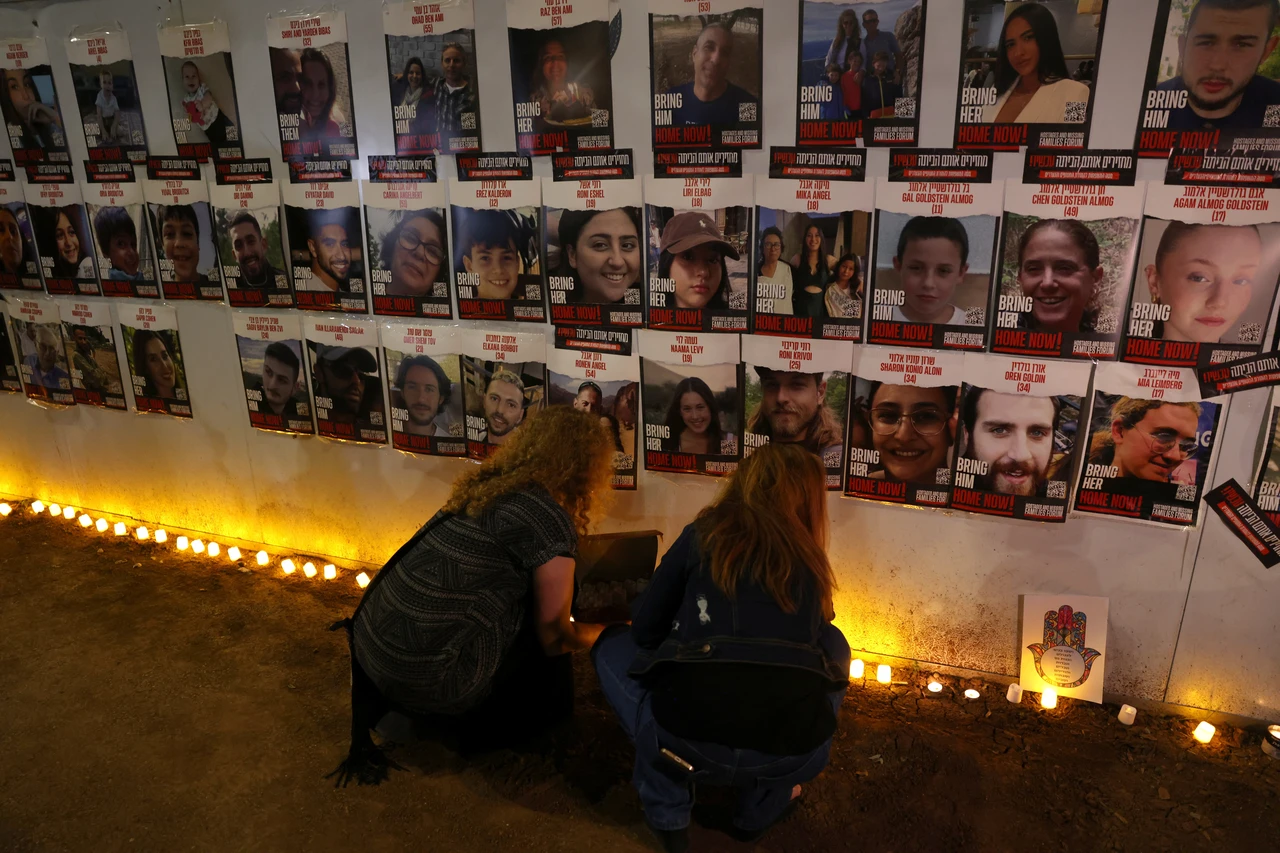Israeli hostages call on Netanyahu to sign prisoner exchange
 People attend a rally outside the Knesset, Israel's parliament, to put pressure on the government to secure the release of the hostages held by Hamas in Gaza, on the one-month anniversary of the October 7 attack by Hamas, in Jerusalem November 7, 2023. (Reuters)
People attend a rally outside the Knesset, Israel's parliament, to put pressure on the government to secure the release of the hostages held by Hamas in Gaza, on the one-month anniversary of the October 7 attack by Hamas, in Jerusalem November 7, 2023. (Reuters)
Three Israeli hostages, freed in a November prisoner exchange, have urged Prime Minister Benjamin Netanyahu to sign a prisoner swap agreement.
According to The Times of Israel, Danielle Aloni, Adina Moshe, and Raz Ben Ami, who were among the 105 Israelis released in late November, made their appeal during a press conference.
Moshe, who plans to travel to Washington next week where Netanyahu is set to visit, addressed the Prime Minister directly: “Prime Minister, I am calling on you; save those you can. There are live captives. Time is running out. Sign the agreement, and you will be the one who brings the living and the dead back to be buried.”
Ami, whose husband is held in Gaza, referenced Netanyahu’s upcoming trip, saying, “I am asking you, I am demanding; first the agreement, then the flight.”
Aloni expressed concerns over the fate of Israeli captives, including her husband, David Cunio, saying they have been abandoned.
Netanyahu is expected to visit Washington on July 21, marking his first visit since his current government was formed in 2022.
Three-Stage Agreement Proposal
The proposed prisoner exchange agreement, which is being indirectly negotiated between Israel and Hamas, consists of three stages.
In the first stage, an immediate ceasefire is to be implemented, along with the release of female, elderly, and injured prisoners. This stage also includes the exchange of Palestinian prisoners, the withdrawal of Israeli forces from populated areas in Gaza, an increase in humanitarian aid, the reconstruction of basic services, and the return of Palestinian civilians to their homes across the Gaza Strip, including northern Gaza, with the support of the international community in providing necessary housing contributions.
If negotiations for the first stage take longer than six weeks, the ceasefire will continue until the negotiations are concluded.
In the second stage, following an agreement, the aim is to bring an end to the crisis by releasing all remaining prisoners and ensuring Israel’s complete withdrawal from Gaza.
The third stage involves launching a multi-year reconstruction plan for Gaza and the return of deceased prisoners’ bodies.



